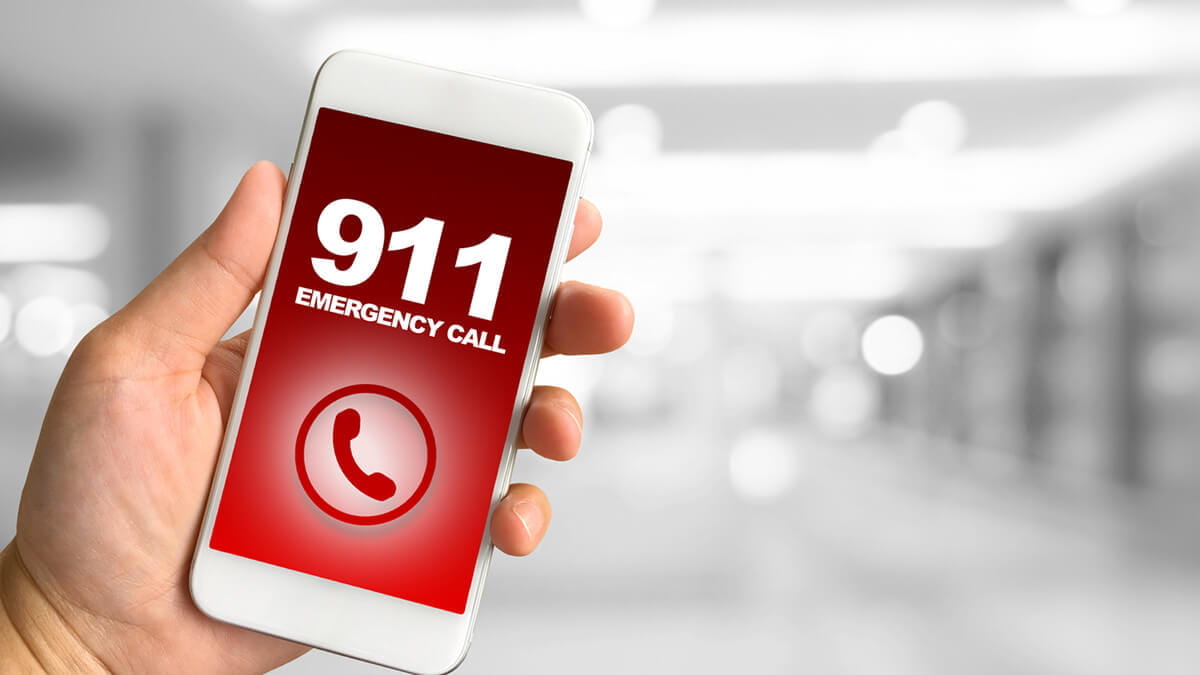When there’s an emergency, you call 911. Everyone knows this. But what else do you know about the 911 system? Here are some interesting facts.
- The Pre-911 System Was Terrible
Not that long ago, if you had an emergency, you had to know the number for the nearest police and/or fire department. And the emergency number was often the same as the non-emergency number, meaning a busy signal was always a strong possibility. Needless to say, this made both reporting an emergency and responding to an emergency complicated. - Universal 911 Isn’t That Old
While 911 is now part of almost every municipality’s emergency management platform, as recently as 1989, only 50% of U.S. citizens could dial 911.1 Nowadays, that number is 99%. - The First 911 Call Was Made in Haleyville, Alabama
On February 16, 1968, the first 911 call was made in Alabama. But it wasn’t for an emergency. It was for show, with the Alabama speaker of the House placing the call and giving the Alabama Telephone Company bragging rights as the first telephone service provider to implement the new system, despite the fact that … - 911 Was Developed by AT&T
In consultation with the Federal Communications Commission, AT&T chose the 911 number and integrated the system into the company’s existing systems. The company selected 911 for three reasons: First, it’s short and easy to dial on a rotary phone. Second, the number 9 was not yet used as an extension. Third, the company had already developed numbers like 411, allowing them to use the same basic infrastructure to process and route 911. - The 911 System Is Not, Technically, National
While the overall 911 system has become an important part of the United States’ emergency preparedness, identification, and response, it’s not a national system. There are over 5,700 primary and secondary Public Safety Answering Points (PSAPs) in the U.S. that handle 911 calls.2 There are also over 3,000 counties that have their own 911 call centers. Each PSAP and each county is tied in to its own system and only handles calls from its designated area. - Hundreds of Thousands of 911 Calls Are Made Each Day
In an average year, around 240 million 911 calls are made in the U.S.2 That averages out to over 600,000 calls per day. However … - Many 911 Calls Aren’t Emergencies
People call 911 for all kinds of things that aren’t emergencies. Overflowing toilets. Dead batteries in a smoke detector. Barking dogs. Often, the 911 operator will simply ask the caller to redirect their concerns to a non-emergency number (or, you know, a plumber). But some municipalities will press charges for misusing 911. For example, in 2015, an Ohio woman was charged with a misdemeanor for calling 911 to complain about bad Chinese food.3 - Any Mobile Phone Can Call 911
Unless a mobile phone’s battery is dead or the user is completely outside every wireless carrier’s service area, that phone can dial 911. No service plan needed. No fees. In fact … - Mobile Phones Are Increasingly Important to the 911 System
In many areas, over 80% of 911 calls are made from wireless devices.2 Because of this, wireless carriers and 911 call centers have worked to leverage the advantages of mobile technology to allow for better and swifter responses to emergencies. In most areas, when you dial 911 on a mobile phone, the 911 operator not only sees your number (which is important for callback in case a call drops) but also your location. With this system all but fully in place, 911 systems are now focused on upgrading to what’s known as Next Generation 911, an IP-based system that allows 911 operators to receive and interface with voice, photos, videos, and text messages. - There’s More Than 911 to Emergency Management
With the evolution of technology, 911 is evolving too, becoming an increasingly vital part of every area’s emergency management system. From city- and state-level emergency management departments to the Federal Emergency Management Agency and other national programs under the Department of Homeland Security, emergency management is a large field comprising all kinds of professionals. And with an MS in Criminal Justice, specializing in Emergency Management, you can join them or advance your place among them.
A master’s specializing in emergency management can help you can gain the advanced skills you need to lead emergency response efforts, improve public policy, and protect communities from natural and human-caused disasters. It’s part public safety degree, part homeland security degree, and part management degree, preparing you for a wide variety of emergency management jobs. And thanks to online learning, you can earn your master’s in criminal justice with a specialization in emergency management more conveniently than you might think.
When you earn a master’s degree from an online college, you’ll have the ability to continue working full time because online education offers an exceptional level of flexibility. Not only will an online degree program allow you to study from home, it will also give you the power to choose when in the day you complete your coursework. With this degree of autonomy, you can earn your MS degree without upending your life in the process. It’s a great opportunity and a fantastic way to put yourself in position to become a leader in the United States’ emergency management system.
Walden University is an accredited institution offering an MS in Criminal Justice, specializing in Emergency Management. Expand your career options and earn your degree in a convenient, flexible format that fits your busy life.
1Source: https://gizmodo.com/how-911-become-the-emergency-call-number-1601064956
2Source: www.nena.org/page/911Statistics
3Source: www.usatoday.com/story/news/nation/2015/07/07/arrest-calling-911-bad-chinese-food/29816187
Walden University is accredited by The Higher Learning Commission, www.hlcommission.org.




